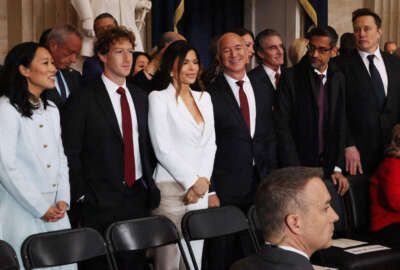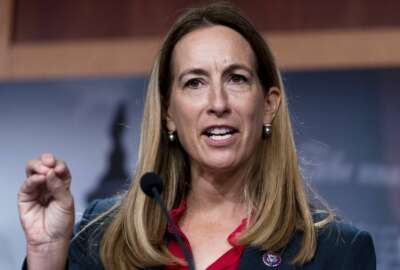3 reasons why new SES reform panel can succeed where others have not
The real test will be if the panel created by the administration is allowed to tell the truth and make something happen, says Federal News Radio's Francis Rose in a...
With only 22 months remaining in the Obama administration, it is making a serious move to keep its promise to remake the Senior Executive Service. That effort is off to a solid (if late) start, but the real test won’t come until the administration is almost out of time. Federal News Radio has documented (and I’ve lamented) the administration’s late arrival to the SES reform party. But the announcement of 24 government superstars to a panel who will advise President Barack Obama is a great start in the effort to play catch-up. The White House did a fantastic job of choosing a wonderfully diverse group of people. The members come from large and small agencies (and even quasi-federal agencies). They have different areas of expertise. (The administration resisted the temptation to jam it full of HR folks.) And they’re even a mixture of SES and General Schedule personnel. This panel has a chance to make a difference where others didn’t for several important reasons. 
- They live the government leadership life every day. Not everyone on the panel is an SESer, but those who aren’t are the kinds of people that, we should hope, aspire to become senior executives. Sadly, Federal News Radio found recently that not nearly enough current high-level GS employees want the added responsibility and pressure, with little to no extra compensation or recognition, that an SES position brings. This group has a chance to tell President Obama, the Office of Management and Budget and the Office of Personnel Management what it will take to make the Senior Executive Service attractive again.
- They can leverage a true desire for change. The White House has no political motivation that I can think of to pursue this goal. President Obama, of course, won’t be on a ballot again. I can’t recall any election ever that turned on effectiveness and efficiency of government employees. So it would make sense for the White House, OMB and OPM to say to this group, “Tell us what we need to hear, not what we want to hear,” and then act. If that happens, this effort could transcend a typical binder-on-a-shelf blue-ribbon panel result.
- They can watch and guide real change as it happens. Perhaps the best part of this entire effort is that change is, to a degree, already happening. OPM Director Katherine Archuleta and OMB Deputy Director for Management Beth Cobert say the departments of Homeland Security, Health and Human Services, Commerce, Energy and the Social Security Administration already have pilot programs in place. This panel of doers will have a unique opportunity to gauge successes, refine the pilots, then watch what happens when the pilots scale inside those agencies and are transplanted to other agencies. That real-life experience and data will add to the juice the panel’s final recommendations will carry.
Three important mileposts stand out on the journey this group is embarking on. First, Cobert and Archuleta say, draft guidelines for a new SES development program that will debut this fall will be open for comments. If the bulk of the comments are constructive, it may signal that the broader government community thinks the administration may be serious about doing this and getting it right. The second milepost is the evaluation of the pilot programs this summer. The separation of good from less-good will go a long way to determining the next steps. Will the experts judge the pilots to be worthy of institutionalizing into agency and government-wide operations? Will the programs scale within the agencies running them? Will they be replicable to other agencies? If the answers are yes, that could bode well for a successful effort to remake the Senior Executive Service. The third is the administration’s SES development program. As mentioned above, it’s supposed to roll out this fall. If it does, and it’s based on the kind of serious input the administration seeks, it could be the final piece to lock in gains in making the SES work better before January 2017. The risks, though, are that it falls behind or dies a silent death for reasons no one foresees. If that happens, it will send a message that none of this was serious and that making the SES better will have to wait for the next President. There is real potential here for real gains in making the federal government a better place to work for the top-level people any organization needs to function at its best. One unintended consequence may be that in streamlining and strengthening the SES, the administration starts a trickle-down effect that permeates the entire workforce and leads to better service to the federal government’s customers. And better customer service could be the first, huge step toward renewing the faith of the taxpayers in what the federal government can do.
In Depth host Francis Rose interviews government executives and contractors about the latest news affecting the way federal employees do their jobs. In Depth airs Monday-Friday, 4-7 p.m. EST, on 1500AM in Washington, D.C. Listen live on FederalNewsRadio.com or find archived episodes here. MORE COMMENTARY FROM FRANCIS ROSE: Why do feds and contractors have such a bad reputation outside DC? Why BRAC is good news for VA, but bad news for DoD and the Postal Service Obama SES reform plan makes problem worse, not better
Copyright © 2025 Federal News Network. All rights reserved. This website is not intended for users located within the European Economic Area.





